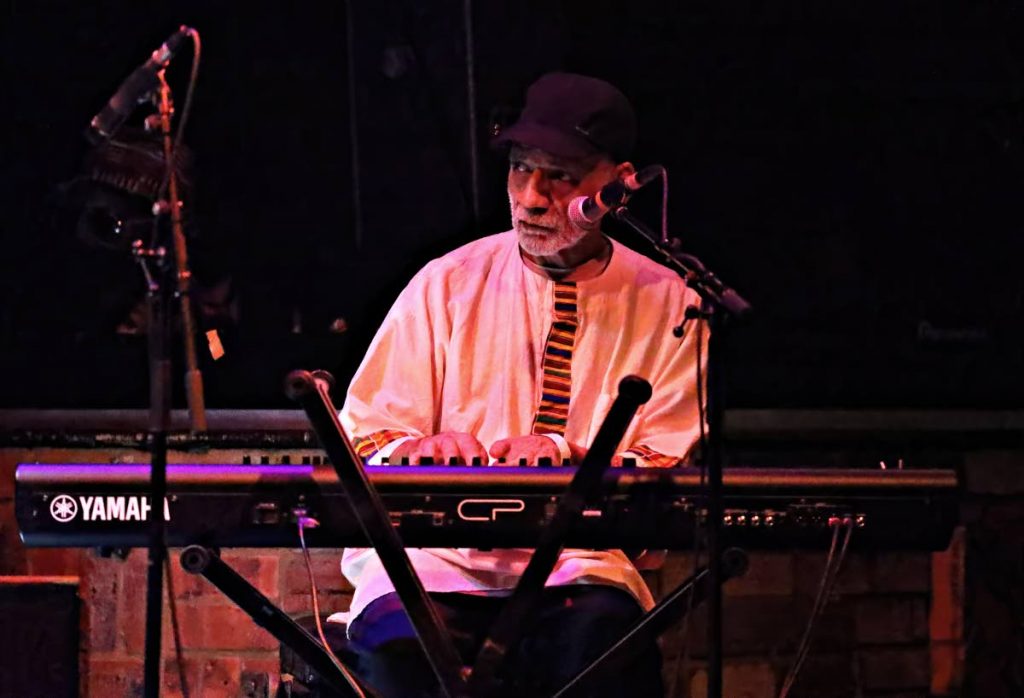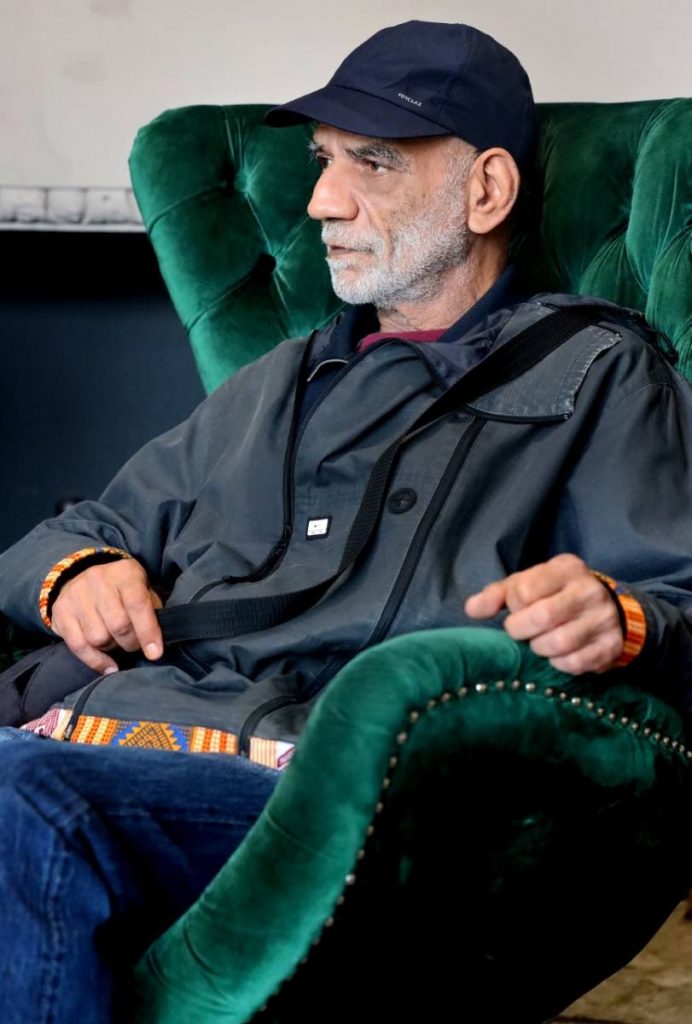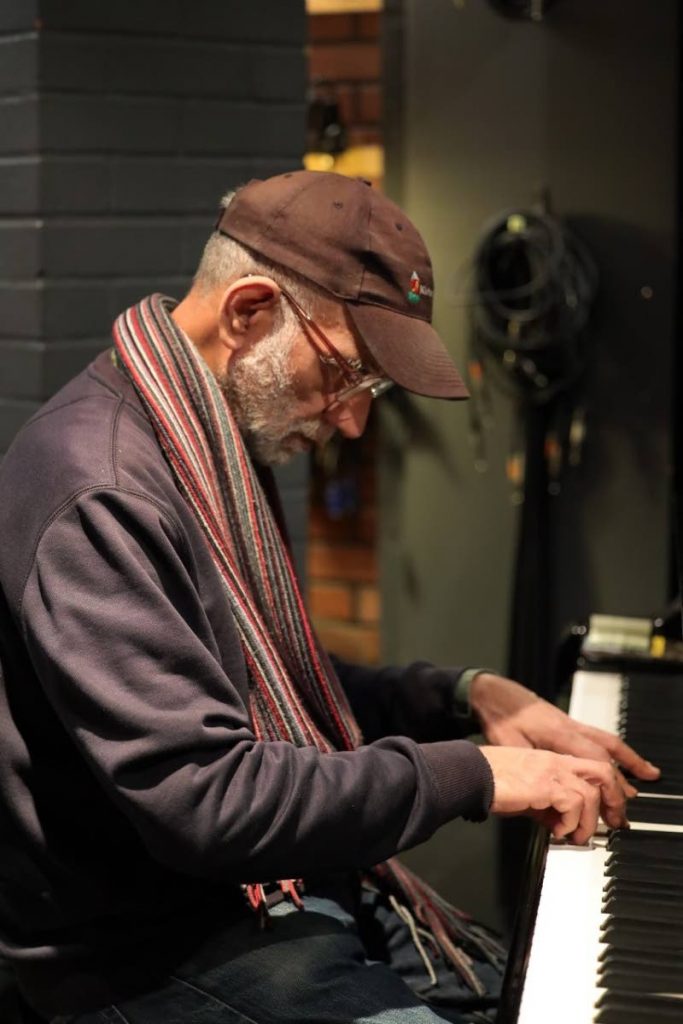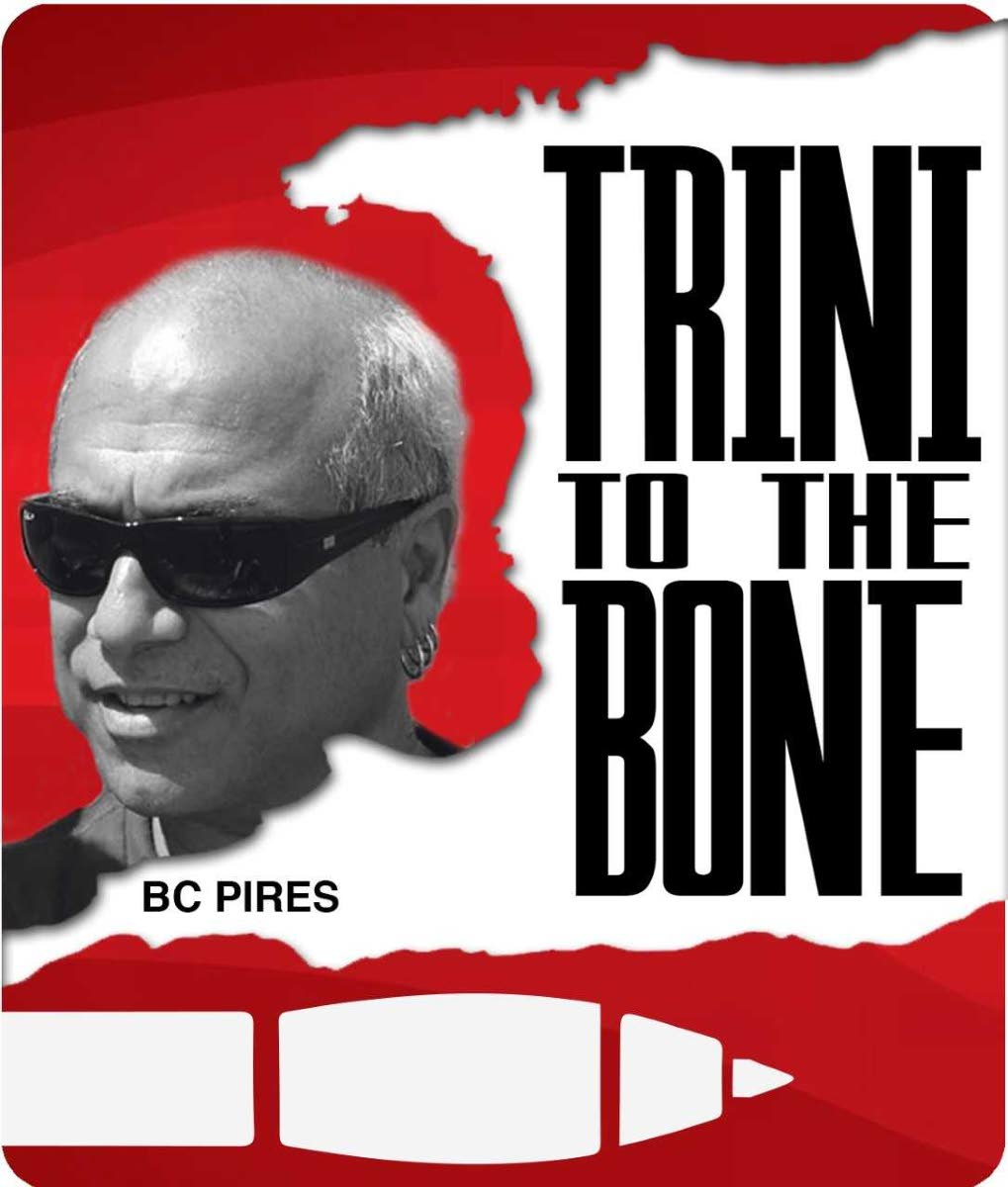Heaven knows where we are going

AS TOLD TO BC PIRES
My name is Robert Bailey and I am an original member of the fusion band Osibisa.
We’ve recently recorded an album, New Dawn, after about ten years.
Our biggest hit in Trinidad was Woyaya. “We are going, Heaven knows where we are going/ We will get there/ Heaven knows how we will get there/ We know we will.”
I was born in England in 1950 but Dad moved to Guyana for his job in 1954.
So I moved to Guyana when I was four until I was ten.
My teenage years were mostly in Trinidad.
My parents were MacDonald & Doris Bailey. My father was the famous Trinidadian runner who ran for Great Britain in '48 and '52.
There were five of us children. Christine, me, Richard, Joan – and Rachel came 15 years later. Which was a bit of a surprise.
Mum was English but she was more Trinidadian than Dad. And more clued up.
Mum was deadly serious about not buying anything to support (then apartheid in) South Africa. She listened to a lot of jazz and was well into black culture.
Whereas my dad was trying to be proper English. Which I found a paradox.
There’s nothing wrong with being a dreamer.
To me, you don’t have to say, “I passed this,” or “I’m a that,” to be a successful person. My daughter did a course in social care and she’s a very happy and beautiful person. Your character is what matters.

And all my kids, Danielle, Jonathan and Jacqui, have good characters, which I’m quite proud of.
I believe there is a spirit, a higher intelligence. If you want to call it “God,” that’s just a word.
I wouldn’t say the higher spirit is in control because you have to connect with it.
My parents were (thinking of) lawyer, doctor but I loved music from way, way back, when I was four, in Guyana, when Dad went to work for one of the early multinationals, Bookers.
And I remember sitting down with the family at a table and Dad and Mum saying only one child, Christine or I, could go when Johnny Mathis came to perform a concert. And I bawled and cried and made sure it was me
Johnny Mathis, how great he was…And then Jackie Wilson, one of the early soul singers, before Otis Redding, came to Georgetown. And I went to that too. I could have been six and I remember Lonely Teardrops.
And my parents realised I would be going to all the concerts. When Louis Armstrong came on a US-sponsored visit to Trinidad, I went to the airport to meet him with Mum and Dad.
Once they realised I was adamant about music, my parents were very supportive.
Dad instilled his drive and ambition in me. When I started my band in Trinidad, he financed everything.
One of Bookers’ perks was that you could send your kids to public (ie, private) school in England, my parents took my elder sister Christine and I up to London. I went to Highgate School for three years. TS Eliot was a tutor there in the past.
So BC Pires is right to say that the keyboard player in the rebel African-rhythms rock group is an English public schoolboy.
I’ve been everywhere in the world, man, touring. Which I loved. And still do.
After three years at Highgate School, I really wanted to go back.
Mum and Dad had moved to Trinidad because of the Burnham/Jagan riots, so I went home to there.
The really good thing about being in England at that time was that the Beatles, the Stones, that whole revolution that totally changed the whole course of music, had just started.
Before the Beatles, music was very stiff, very structured – which is not to say it’s bad.

After the Beatles started writing their own songs, everyone started creating their own music and you got a whole new set of styles, like The Who.
I was just learning the guitar and would go buy sheet music for their songs. Already I was really connecting to music.
I was in the combos (live music bands) era as a teenager in Trinidad.
I started off with Michael Boothman in Rockefellers. They had, like, five guitar players and needed a keyboard player.
When I heard Jimmy Smith and Booker T & the MGs, that organ sound did it for me. The keyboard became my instrument. Dad somehow managed to put together with (Trinidadian musical instrument supplier) Sa Gomes and I got the first Hammond B3 in Trinidad. Even today, it has that great sound.
I still miss the days in Trinidad when my band, Group Solo, was getting popular, playing with a lot of other bands, like Casanovas, in a friendly competition.
We would play Perseverance and the place would be
packed! A couple o’ thousand people, really buzzing. Those were good times for me.
I agree with BC Pires that we made some great, totally different music, especially considering the time.
Everyone was doing rock music and I tried to join a couple of rock bands. But that was very strict, one-in-four (rhythm) all the time.
I thought, “Nah-nah-nah, there are much more subtle rhythms than that!”
And the name Osibisa actually means “criss-cross rhythms.” So I thought, “Yeah, this is for me!”
I joined the band in early 1970.
In our first year, we were doing a lot of gigs and making no money at all, but because of my parents, I could afford to do that.
Within a year, we had created such an appeal, record companies came from America to check the band and we got a record deal and a management deal. And it just took off after that.
Our first American tour was with the top American band then, Three Dog Night.
And after we finished, they couldn’t move the crowd an inch! They said, “Sorry, guys, but we can’t have you opening any more.”
They were a great pop group but, in a live situation, they didn’t have the dynamics Osibisa had. (Three Dog Night’s big hit then) Mama Told Me Not to Come (just couldn’t follow Woyaya).
Osibisa was famous for our Roger Dean album covers. He did the Yes album covers at the same time.
After Osibisa, I started Papa Music with my brother Richard, a great drummer, and guitarist Winston Delandro.
Like my relationships with women, when I left Osibisa, I never had any argument with anybody. So I could always go back.
Which is what I did with the New Dawn album.
Apart from original bandleader Teddy Osei, I’m the only original member of Osibisa on the new album.
Teddy asked me to take care of putting it together and I agreed, because of the respect I have for Teddy and his role in the band.
He’s still there in an advisory role and sort of oversees, though I wouldn’t say approves, of what we’re doing. Physically, he’s not in a very good condition but he’s still a very beautiful person, conscious and aware.
The pandemic made recording New Dawn very challenging.
Normally, a band would get together, rehearse, and then go into the studio to record live. I would do rhythm tracks on the computer, send it to others involved and that’s how we did the songs. Not quite how I would have liked it to have been.
But the engineer, Michael Smith, really managed to make it sound as though it were live.
It’s a bit sad for me when I think of the music coming out of Trinidad now. People like Kitchener and Sparrow had such deep music, poetry in lyrics. It was really a high art, the way they twisted and turned a song. Double meaning.
That is gone. All they sing about now is party, good time, wine. How shallow.
Anywhere you go in the world, Finland, Japan, anywhere, a Trinidadian turns up.
Trinidadians can live all year very seriously, but when Carnival comes, the true nature of the Trinidadian (comes out): “Everything is a party, nothing is a problem.”
That evolved from the Carnival, a quite extraordinary event, and it makes Trinidadians not fretful or worrying, but happy-natured people.
But that means they can sometimes lose their way.
I remember to this day the great times I had playing fetes in Trinidad as a teenager.
I was born in England and grew up a little in Guyana.
But Trinidad was where I started doing music. It was my musical foundation, the place where I have my roots. Therefore I have to acknowledge it.
I still love to go back and try to recapture that Trinidad. Even though the music has gone so far off track.
Read the full version of this feature on Saturday at www.BCPires.com


Comments
"Heaven knows where we are going"